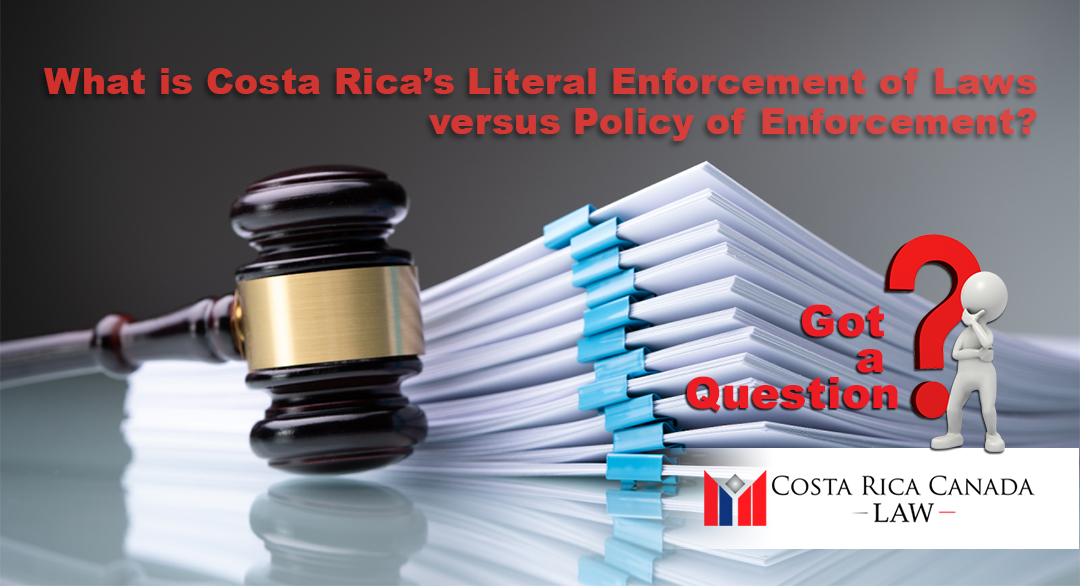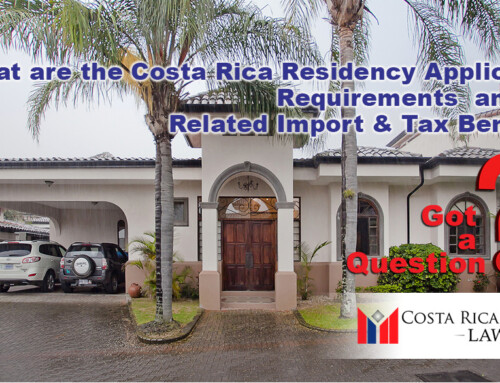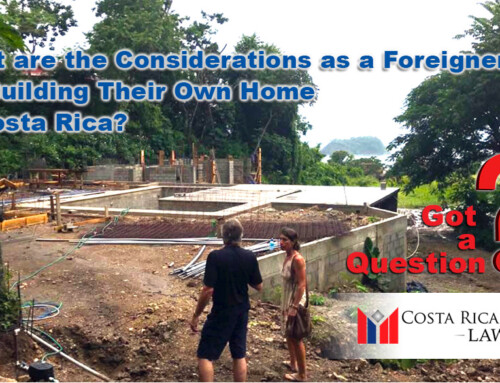Many foreigners moving to live in Costa Rica will be coming from countries such as the U.S. and Canada. In those Countries, the general application and the Policy of Enforcement of the Law and Regulations is relatively close to that which is written in the Statutes and Regulations where the written law appears and is applied on a timely basis. Some Policies of Enforcement do exist in those Countries, which may modify the literal application of the written law, usually in matters of Regulatory enforcement, but not to any great degree.
Costa Rica Policies of Enforcement
In Costa Rica, there is generally a less literal and timely approach adopted for the Policy of Enforcement of Laws and Regulations. This less strict approach to enforcement is also generally limited to Regulatory matters, but it is much more widespread in the use of Administrative Policies of Enforcement in its application. The important thing to note, is that Policies of Enforcement are Administrative, rather than Legislative in nature, and may be changed or varied by the applicable Executive Authority of Government, without the required notice that would ordinarily be required to be given to Legislative changes in the law. Policies of Enforcement do not change the written law, they only change the manner in which the written law is applied and enforced, or not enforced, as the case may be. This difference in legal application and enforcement policies can lead to some misconceptions by foreigners as to what the actual enforcement of the written law is in certain circumstances.
Applications of Policies of Enforcement to Temporary Residency Work Restrictions
One of the stark examples of Policies of Enforcement modifying the application of the law is the working restrictions associated with foreigners holding Temporary Residency status. The Right to Work for foreigners must granted by the Costa Rica Immigration Department. The status of Special Temporary Residency by Marriage to a Costa Rica Citizen, or by being in a close Family Relationship with a Costa Rica Citizen, such as being the biological parent of a child born in Costa Rica, are examples of Temporary Residency Categories where the Immigration Department will grant the Right to Work to those status holders. Except for a limited number of Special Temporary Residency status categories where this Right to Work is specifically granted, working for wages or a salary while holding Temporary Residency status is prohibited by law. I have written a separate article on the specific work restrictions which apply generally to foreigners while holding Temporary Residency status, or otherwise, which is accessible here.
Foreigners with Temporary Residency status, especially those who wish to earn an income, or own, and wish to work in their business, may form the opinion that the Immigration Department and the Immigration Police do not take a very active or any approach to enforcement, for the work restrictions on foreigners working for wages or a salary, who hold Temporary Residency status. At the moment, the enforcement, if any, in these circumstances appears to be on a competitor business generated complaint basis only, rather than any active pursuit by the Immigration Department to enforce the Law on a literal basis. Obviously, this enforcement status arises from an Administrative Policy of Enforcement, which is unavailable in any written format, which Policy appears at the moment, to be not to enforce these work restrictions for the holders of Temporary Residency status. This circumstance may lead to a false sense of security for some foreigners, depending upon their Immigration status. However, recent information from enforcement proceedings taken by the Immigration Department with respect to foreigners working without Permanent Residency status, for a salary or wages, would indicate that this long time lax Administrative Policy of Enforcement may be changing to a Policy of Enforcement, closer to that of the written law.
Opinion
The important take-away for foreigners involved in working circumstances not specifically authorized by the Immigration Department, holding Tourist Visas, or holding Temporary Residency status, is that any lack of enforcement of the Law through a Policy of Enforcement that is lax, does not protect the foreigner from a change, or a rescission of this Policy of Enforcement, without notice, should the applicable Government Administrative Authority choose to do so. The result of the rescission or variance of this Policy of Enforcement, could leave a foreigner in a compromised position with respect to any enforcement action taken by the Immigration Department. There is no Defense of Entrapment available in Costa Rica.
There are other examples of where the written law and the Policy of Enforcement diverge in the ultimate application of the law, however, the example utilized in this article of foreigners’ work restrictions is a likely one to encounter in many instances of foreigners moving to and living in Costa Rica.






